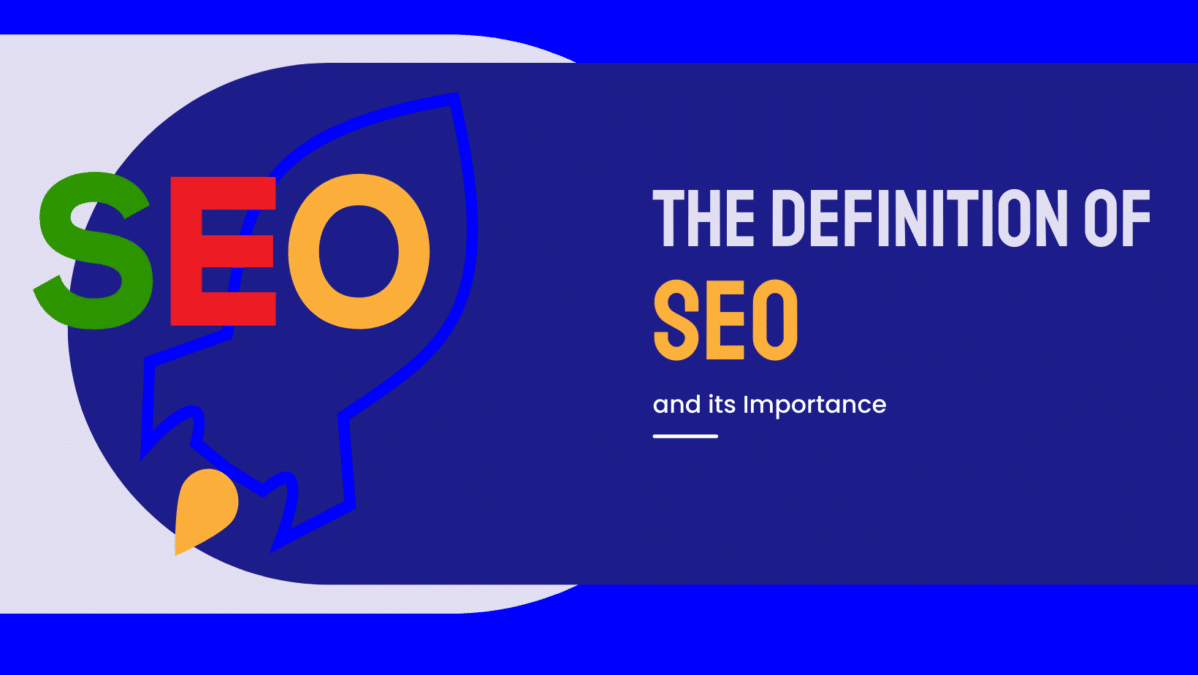
Reasons Visitors Hate Your Website
August 25, 2021
Local SEO: 16 Surprising Stats That Prove Its Importance
August 26, 2021The Definition of SEO and its Importance
Learn what SEO is and why it’s important, how it works, and about developing an SEO marketing strategy
Search Engine Optimization (SEO) has come a long way since its inception and continues to evolve at a rapid pace. Once considered a simple matter of including relevant keywords and building links, SEO has now become a complex and dynamic discipline that requires a deep understanding of search algorithms, consumer behavior, and the latest industry trends.
As search engines become increasingly sophisticated in their ability to understand and rank websites, the techniques used for optimization must also adapt to stay ahead of the competition. In this ever-changing landscape, staying up-to-date on the latest best practices and trends is crucial for success in SEO.
Let’s take a look at some of the elements of SEO.
What is SEO?
SEO stands for Search Engine Optimization, it is the process of optimizing a website or web content to increase the quality and quantity of its organic traffic from search engines, like Google, Bing, and Yahoo. The goal of SEO is to rank higher in the search engine results pages (SERPs) for targeted keywords, making it easier for people to find the website through search. This involves a combination of technical and creative elements, including keyword research, content creation, on-page optimization, and link building.
How Does Search Engine Optimization Work?
SEO works by improving the visibility of a website or web content in search engine results pages (SERPs). Search engines, like Google and Bing, use complex algorithms to determine the relevance and authority of a website, and to rank it in the SERPs for specific keywords and phrases. You can generally see the results of SEO efforts once the webpage has been crawled and indexed by a search engine.
Looking deeper: There are a ton of ways to improve the SEO of your site pages, though. Search engines look for elements including title tags, keywords, image tags, internal link structure, and inbound links (also known as backlinks). And that’s just to name a few. See our article on ranking factors.
Search engines also look at site structure and design, visitor behavior, and other external, off-site factors to determine how highly ranked your site should be in its SERPs.
What is SEO Strategy?
An SEO marketing strategy is a comprehensive plan to get more visitors to your website through search engines. Successful SEO includes on-page strategies, which use intent-based keywords; and off-page strategies, which earn inbound links from other websites.
Search algorithms of search engines like Google and Bing are constantly evolving, which means that the techniques used for optimization must also evolve. Over the years, search engines have become increasingly sophisticated in their ability to understand and rank websites and web content. As a result, traditional, outdated optimization methods no longer work, and new, more effective techniques must be adopted.
In recent years, search engines have placed a greater emphasis on user experience and high-quality, relevant content. This means that techniques such as keyword stuffing, excessive link building, and other spammy tactics are now penalized, and websites that employ them risk being demoted or even banned from the search engine results pages.
Today, SEO is more focused on creating high-quality, user-friendly websites and producing engaging, informative content that addresses the needs and interests of target audiences. Effective SEO also requires ongoing monitoring, analysis, and optimization to adapt to changes in search algorithms and stay ahead of the competition.
Here’s a high-level overview of how SEO works:
- Keyword research: Identifying the keywords and phrases that potential customers use to search for products or services like yours.
- On-page optimization: Ensuring that the website’s content and structure are optimized for search engines, using the target keywords in headlines, meta descriptions, and other important elements.
- Content creation: Producing high-quality, relevant, and engaging content that addresses the needs and interests of target audiences and features the target keywords.
- Link building: Acquiring links from other high-authority websites to demonstrate the authority and credibility of the website.
- Tracking and analysis: Monitoring the website’s search engine performance, analyzing the results, and making changes to improve rankings and increase organic traffic.
By following these best practices and continually adapting to changes in search algorithms and consumer behavior, SEO can help a website rank higher in the SERPs, attract more organic traffic, and ultimately drive more leads and sales.
The Importance of SEO
SEO is important because it helps people find information and discover pages on the world wide web. SEO is especially important for businesses as it ensures they’re answering their audience’s biggest questions on search engines while driving traffic to their products and services.
Looking deeper: In the past, SEO success was measured by whether or not you were ranked high on the first page of Google. But even if you ranked well for a term, does that actually mean you’re going to see results?
Not always. You might rank really well for terms that aren’t ideal for your business. So you appear high on search engines and get a ton of traffic, but then your website visitors realize your company isn’t what they were looking for. You don’t convert customers from this traffic, and ranking high for this particular keyword is essentially fruitless.
The amount of traffic to your page is less important than how qualified that traffic is.
The Sweet Spot
There’s also Organic Traffic, Direct Traffic, and Pay-Per-Click Traffic that can affect your SEO. Advent Trinity’s sweet spot happens to be SEO and we are happy to help you get results!




